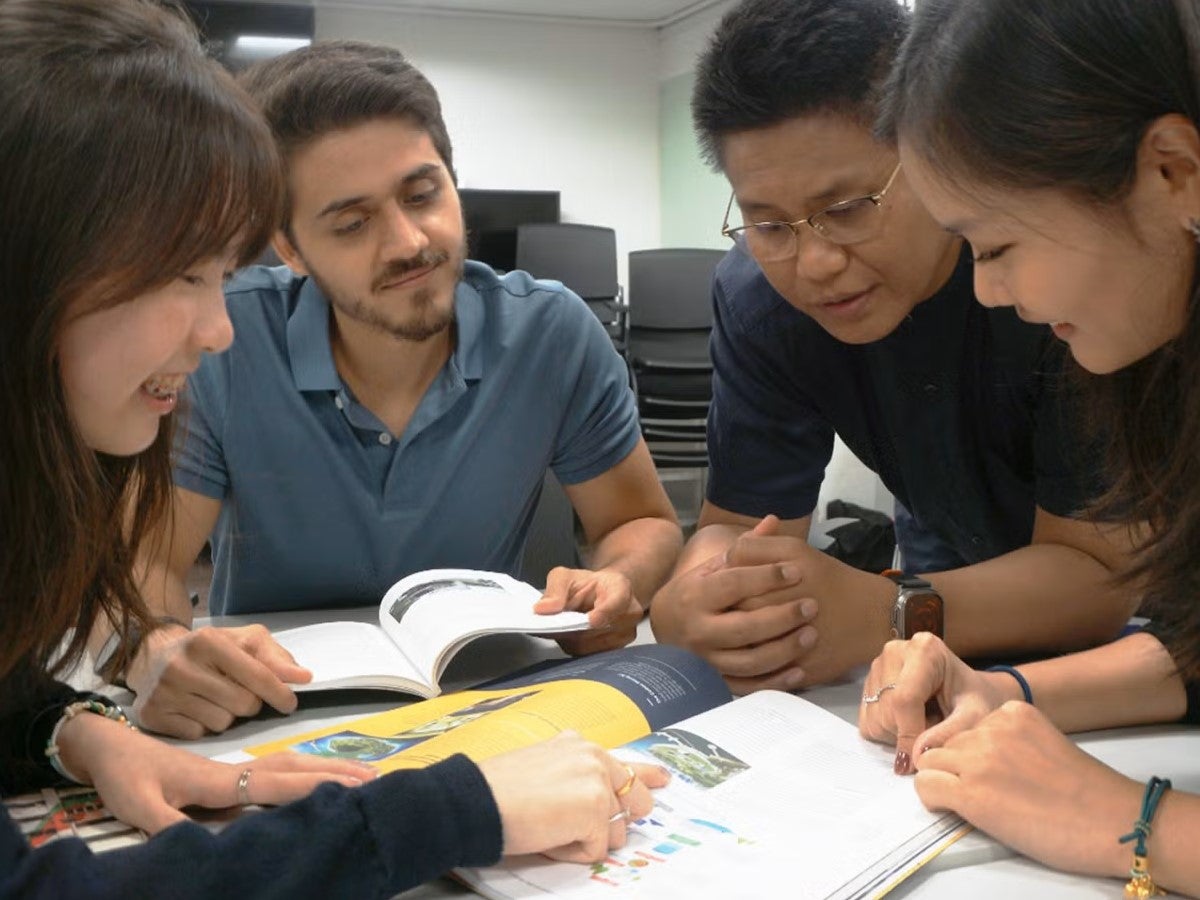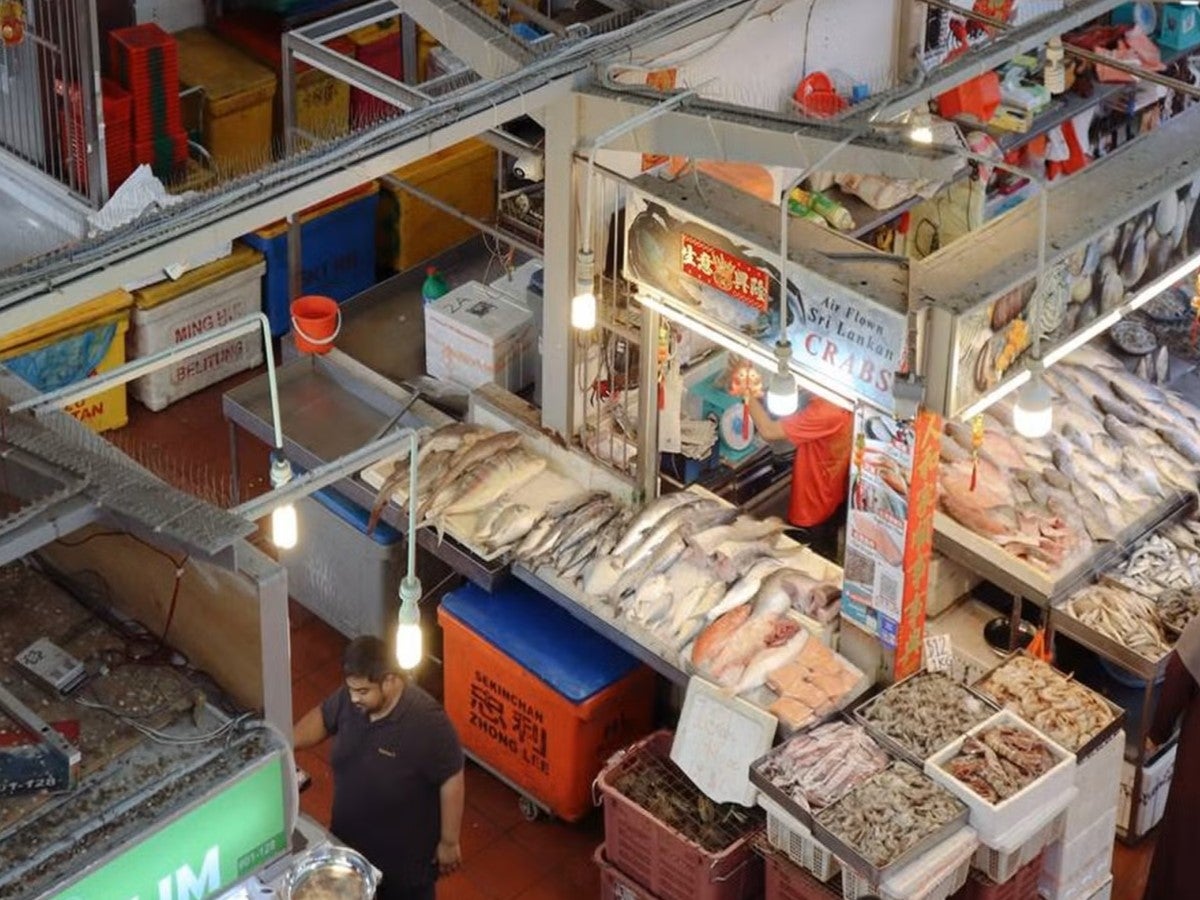Master of Cities
The Master of Cities prepares you to be at the forefront of shaping and transforming cities. You will gain first-hand perspectives of urban projects and policies from our expert faculty. You will get the chance to delve into cross-cultural dialogues with other urban professionals. The Master of Cities will equip you with interdisciplinary practical and theoretical concepts, to analyse complex urban issues and deliver impactful change.

Advance your career without pressing pause
Our flexible format is built for driven professionals like you. The Master of Cities will not demand extensive commitment every semester. Instead, with a blend of in-person intensive blocks and shorter periods of online learning, you will gain cutting-edge urban insights — and apply them at work immediately. Grow your career, not your time away from it.

Build your urban toolkit
Cities are complex, and no single approach can solve them all. Learn from local and international experts spanning different disciplines and across theory and practice to understand how different cities have approached their challenges in unique ways. With this, you will be equipped with the tools necessary to remain nimble and relevant in any urban context.

Cities as living textbooks
The Master of Cities goes beyond theory to immerse you in the messy, layered, and real-world challenges of actual cities. Our case-based approach is designed for professionals who do not just want to study cities — they want to understand how change really happens. With Singapore as a base, you will gain insider access to one of the most dynamic and well-planned urban systems in the world — and critically examine how it navigates competing demands across density, sustainability, inclusivity, and innovation.
Gain access to our faculty who have a wealth of knowledge flowing from their personal experience in real-world projects - let them challenge and broaden your thinking about what a city can be.
Cities Core Courses
CIT5001
How can a systems approach be implemented in various contexts to create a liveable, sustainable, and resilient city?
Provides an overview of the complexities and challenges that cities face to achieve liveability, from envisioning what it means for cities, getting the evidence and stakeholders’ support for informed decision-making, to institutional building and management methods for effective governance, policy formulation and integrated planning.
Students will be equipped through systems analysis and discussions of Singapore and international case studies, and use the course as a scaffold to formulate their chosen points of investigation for their capstone projects.
CIT5002
How do cities a sense of social and spatial equity for its communities? How do cities provide fair opportunities to access and representation within the city for these communities?
Introduces students to the effects of urbanisation on various stakeholders and how to balance and address conflicts of interests and priorities amongst them within Singapore and other cities.
Integrating a community-led/bottom-up and city-led proposals approach to governance, students will gain insights how to develop and enact policies that help provide good accessibility and inclusiveness within the city through policy formulation, planning and development, and engagement.
CIT5003
How are cities balancing the conflict between nature and the need for urbanisation?
Examines the challenges and opportunities in building sustainable cities. Students will leverage on Singapore’s experience and explore how cities from different countries address the complex interplay between sustainability, nature and urban development.
The course encourages students to explore and critique sustainable policies that foster resilience and ecological balance in urban environments, and allows them to gain insights on strategies and practical skills needed to achieve sustainability in cities.
CIT5004
How can innovative urban management models and emerging technologies contribute to a competitive economy?
Explores the dynamics of urban development in a globalized world, where cities must balance sustainability, technological innovation, economic growth, and social equity to remain competitive.
The course investigates how cities can foster long-term resilience, attract investment, and become hubs of innovation, while ensuring environmental sustainability and improving the quality of life for all residents. Students will develop a practical appreciation of how to craft strategies for building competitive, sustainable cities that can thrive in the face of global challenges.
CIT5005
How can better governance and planning contribute to the liveability within cities? How do modes of governance adapt with the dynamic needs of the city? How can we create a sustainable governance and planning structure?
Delves into the complexities of integrated planning and urban governance against the backdrop of a rapidly evolving urban environment. By addressing both enduring and emerging challenges, the course provides a foundational and critical understanding of urban governance through three key interdisciplinary and practice-oriented themes: The Planning Milieu, Technological Transformation, and Community and Partnership.
Translation Courses
CIT5010
How can students leverage on their Cities knowledge to apply it to real-world contexts?
An immersive and project-based course that challenges students to draw upon their well-round Cities scholarly education to produce original academic research and practice projects. Through this, students can transform their scholarly knowledge into impactful academic research and real-world applications.
CIT5011
How can we leverage on the expertise of visiting professors to examine relevant and current urban issues? How do we stay abreast of the latest trends, practices, and challenges in the dynamic environment of cities?
Provides a platform for students to actively engage and respond to contemporary urban issues and complexities in real-time. Students will discuss urban complexities and bridge theoretical knowledge with cutting-edge research and industry practices.
By leveraging on the knowledge of a global network of leading urban professionals, academics, and researchers, students will be able to learn more about relevant urban issues that are happening in cities today. Each masterclass focuses on a specific urban issue to provide greater insights and highlight current cutting-edge research and technologies in the field.
*Masterclass is taught by established academics and/or practitioners.
Capstone project is 8 credits and will span across one year.
Cross-Department Courses
Electives are offered by other departments within NUS to further build each student's interest and relevant specialisation.
A total of 8 units required.
| Eligibility | NUS Honours degree (Merit/ Second Class and above) or equivalent (e.g., a four-year Bachelor degree with at least an average grade of ‘B’) in a relevant discipline; or in exceptional cases, a Bachelor degree in a relevant discipline with at least a two-year of relevant work experience, subject to approval by the Faculty and Board of Graduate Studies, on a case-by-case basis. |
| English Requirement (subject to changes) | TOEFL (internet-based test) > 85 or IELTS (academic) > 6.0 is required if your first language is not English.
You may be waived from this requirement if you have completed your degree programme taught entirely in English, situated in an English-speaking country, for example (non-exhaustive list) Australia, Canada, Hong Kong, India, New Zealand, Pakistan, Philippines, Singapore, United Kingdom, USA. The TOEFL/IELTS result is only valid for 2 years after the test and should be valid at the beginning of the application period. *Expired scores will not be considered for the application. |
| Other Supporting Documents | A resume (max. 4 pages)
A personal statement on education and professional experience relevant to cities' issues (max. 2 pages) |
| Application Period | 28 July 2025 - 15 October 2025 (January 2026 intake)
16 October 2025 - 28 February 2026 (August 2026 intake) |
Find out more about CDE Global Fellowship Programme here.
FAQs on Graduate Admissions can be found here.
Application Fee
A non-refundable application fee of $100 (exclusive of GST) is charged for each application.
Acceptance Fee
An acceptance fee of S$5,000.00 (exclusive of GST), which will be credited towards your programme fees, is payable upon acceptance into the programme. Fee is non-refundable and non-transferable.
Total Programme Fee
The total programme fee for the respective categories is shown in the table below.
The full programme fee (before rebate) is S$68,000.00 (exclusive of GST) or S$74,120.00 (inclusive of GST).
Singaporeans, Singapore Permanent Residents, International Students (NUS Alumni) who are self-funded are eligible to enjoy up to 40% tuition fee rebates under the NUS Master's by Coursework Enhanced Tuition Fee Rebate Scheme. The rebate described here is not stackable with other scholarships, study awards, grants, sponsorships, bursaries, or other types of financial assistance.
International Students (NUS Cities Alumni*) and International Student (Southeast Asian) are eligible to enjoy up to 30% tuition fee rebates.
*NUS Cities Alumni refers to graduates from NUS Cities' executive education programme 'Cities Programme'.
| Category | Total Programme Fees | Acceptance Fees | 1st Semester | 2nd Semester | Fee Rebate |
| Singapore Citizen | S$44,472.00 | S$5,450.00 | S$18,421.00 | S$20,601.00 | S$29,648.00 |
| Singapore Permanent Resident | S$44,472.00 | S$5,450.00 | S$18,421.00 | S$20,601.00 | S$29,648.00 |
| International Student (NUS Alumni) | S$44,472.00 | S$5,450.00 | S$18,421.00 | S$20,601.00 | S$29,648.00 |
| International Student (NUS Cities Alumni) | S$51,884.00 | S$5,450.00 | S$22,399.50 | S$24,034.50 | S$22,236.00 |
| International Student (Southeast Asian) | S$51,884.00 | S$5,450.00 | S$22,399.50 | S$24,034.50 | S$22,236.00 |
| International Student | S$74,120.00 | S$5,450.00 | S$34,335.00 | S$34,335.00 | N.A |
- The fees listed are in Singapore Dollars (S$) and inclusive of 9% Goods and Services Tax (GST).
- Payment of fees will be on an instalment basis, paid over 2 semesters. Full fee must be paid before a student can graduate from the programme.
- Students need to separately pay for Miscellaneous Student Fees (MSF) directly to the University on a semester basis. Fees are renewed annually. For the latest Miscellaneous student fees, please refer to Registrar's Office website.
- Programme fees do not include the cost of recommended textbooks and readings.
- The cost of travel, accommodation and miscellaneous expenses are not included and are to be borne by the student.
This page is updated as of 10 February 2026.
Admissions are open!
Apply at the link below
Stay updated
Join our mailing list
If you have any questions, please contact:
NUS Cities Master of Cities Inbox: masterofcities@nus.edu.sg
NUS Cities General Inbox: nuscities@nus.edu.sg
We strive to keep the information on our website as accurate and up-to-date as possible. However, the University and we reserve the right to make changes without prior notice.
Important: The University has not engaged any external agencies to undertake graduate student recruitment on its behalf. Interested candidates are advised to apply directly to the University. Candidates who apply through agents will not have any added advantage in gaining admissions and the University reserves the right to reject such applications without giving reasons.

